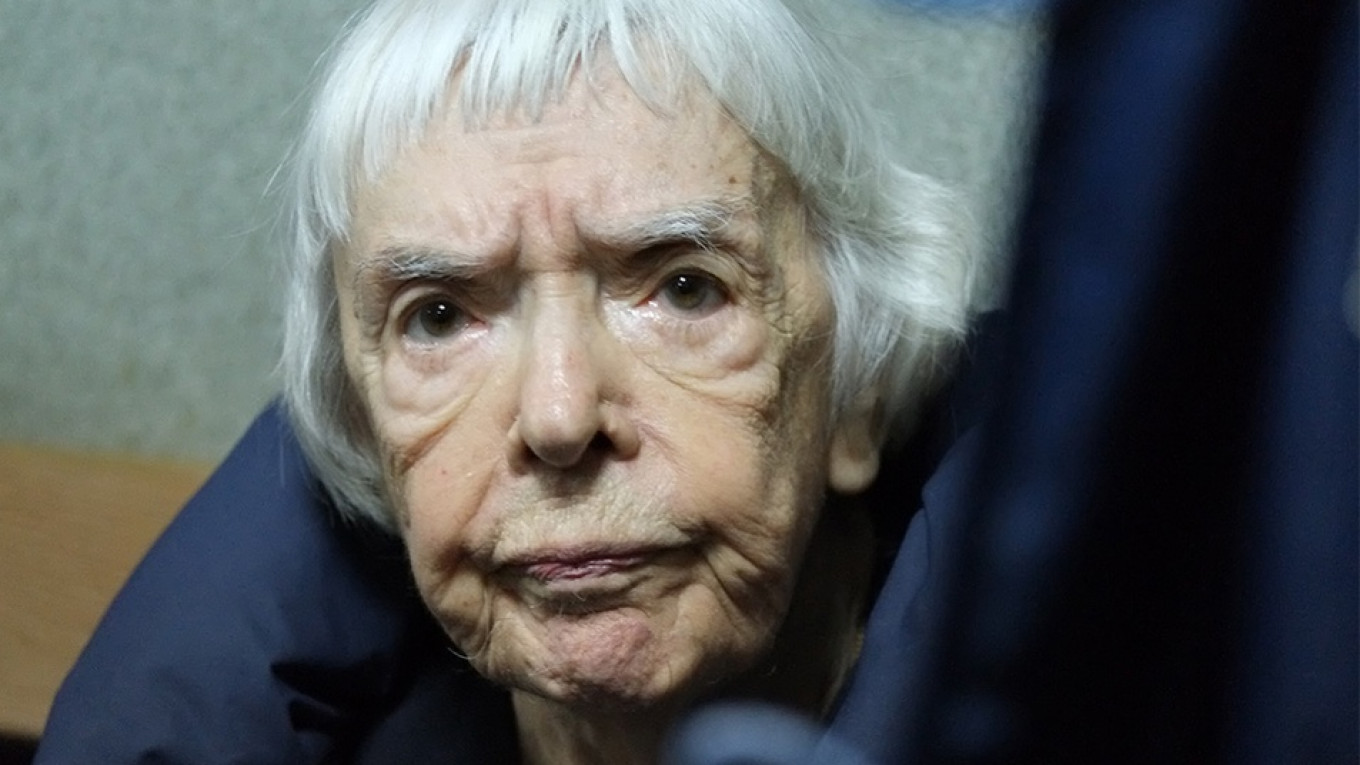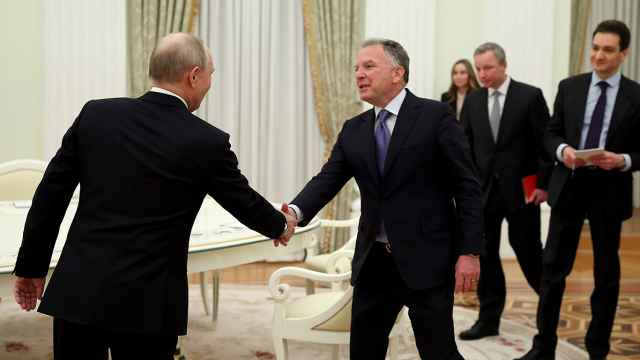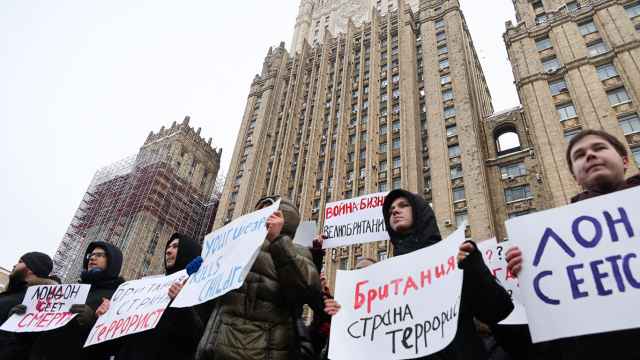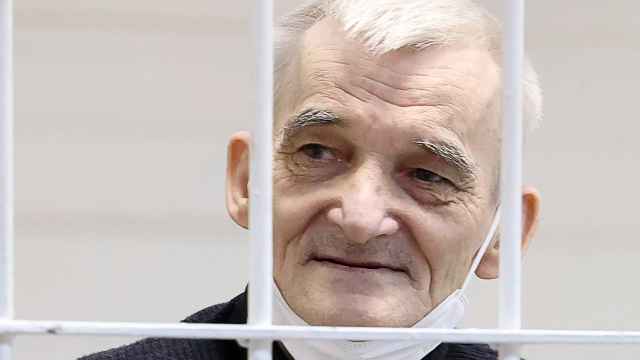Unable to attend the annual Moscow Helsinki Group conference in early December due to illness, Lyudmila Alexeyeva penned a letter, reflecting on the human rights movement and offering advice to the younger generations. Alexeyeva died on Dec. 8, a day before the conference. The Helsinki group has kindly agreed to let The Moscow Times publish an English translation of Alexeyeva's last public statement.
My dear friends and colleagues,
I am very sorry that my health did not allow me to be with you on this very important day for all of us – the day we celebrate the 70th anniversary of the Universal Declaration of Human Rights!
We really have something to celebrate and think about on this day. Seventy years ago, an extremely important document was adopted that, drawing on the tragic and terrible experience of World War II and based on respect for human dignity and human rights, formulated the universal rights of coexistence on our planet.
Over the past decades, we have worked to the best of our abilities and talents to ensure that this important Declaration took on real substance, became part of our culture and politics, was protected by laws and institutions, and became an integral part of our daily lives. Movement in this direction was difficult. It proceeded with varying degrees of success and at different speeds, as it saw victories and disappointments, gains and bitter loss.
Looking back, it is worth noting unconditional progress in the development of international law, the abandonment of the colonial system, the gradual abolition of the death penalty, and the global struggle against discrimination and racial prejudice and for the equality of women and men. Further, a growing number of people on the planet live in conditions of freedom and democracy, we have managed to avoid a new global war and the intensity of military conflicts is generally declining. That progress would have been impossible without an active movement of human rights defenders and humanitarians around the world!
At the same time, we must recognize that, the further and further away we move from the lessons of World War II, the more cynical and careless new generations become of the established but not yet fully secured system of values and institutions, constantly and increasingly testing its strength.
The growth of political populism and nationalism against the backdrop of the migration crisis, religious conflicts, the resurgence of authoritarian rulers and crass ideologies in some parts of the world, and the rejection of international obligations by individual states (including Russia, which is especially regrettable for us) jeopardizes all of our important but fragile gains of the past and places the burden of new and difficult challenges on your shoulders.
I sincerely hoped that we would be able to leave behind a better and more just world in which there would be no place for the hardships and suffering that befell my generation and those that came before. I continue to hope for this, but, unfortunately, it is already clear that you will also face many difficulties and challenges. I simply want to believe that your generation will not repeat our mistakes and can build on some of the achievements and accomplishments that have been made.
One major challenge for the modern global human rights movement is that part of it has been bureaucratized and has become part of the activities of national governments or intergovernmental organizations – especially in Europe. Another part of the movement is actively and directly involved in the political struggle. Activists in this part work only with a narrow group of political allies, limiting their ability to influence the worldview of a majority of their fellow citizens. This does not mean that I am against working with the authorities or politicians. It simply means that we need far more people in the movement who are ready to communicate and spread their values to wider audiences, especially among young people.
I think this is our most important task – to get out of the “ghetto” of comfortable communication with like-minded people and narrow expertise and reach out to the masses, to promote education at a new level, with new approaches, technologies and people. It is this type of broad human rights and, in general, humanistic education that should become one of our most important tasks.
We should also do everything we can to preserve unity and goodwill within the movement! We may disagree in our individual views or on tactics for achieving our avowed aims, but, in order to achieve our common strategic goals, we must be tolerant of our differences, respect and support each other, and not allow the authorities to provoke us into infighting and mutual distrust.
The hallmark of the human rights movement in Russia has always been international solidarity with the civil societies of Belarus, Central Asia and other countries. Now it is important that we act in solidarity with the human rights defenders of Ukraine and, in particular, Crimea. Support for the Crimean Tatars peace movement has always been a specific objective of the Moscow Helsinki Group and our entire human rights movement.
I think we have a challenging time ahead, including in Russia. We see very clearly how weak civil society, legal culture and democratic institutions still are in our country. It is naïve to think that only the authorities are to blame for this. Yes, it is our bad fortune to have such leaders, but all of us also bear responsibility for the fact that those authorities are able to rely on the support of most of our fellow citizens with the help of artless propaganda and manipulations.
We underestimated the extent of the influence held by a wounded and imperial chauvinistic consciousness – a legacy of the totalitarian past. And we don’t always know how to select the proper arguments and style of communication with people in order to convince them. Without this ability, even if leaders come to power who are more in solidarity with our views, we will continue to be dependent on the will and views of politicians who are prone to populism and cynicism.
We must learn to communicate and disseminate our views and values among all our fellow citizens, refusing no one – not the authorities, not the opposition, not the victims of abuses, not those who have committed crimes. After all, they are all compatriots, and all are people endowed with human dignity. It is for their sake that we work, and it is with them that we will live and build a better world.
We must stand up for and defend our convictions, our remaining and ever-diminishing rights and liberties, while opposing the isolationism, militarism and clericalism of public life, and pointing out to the authorities and society the error of the path they have chosen.
We must not allow a complete ideological obscurantism to win out. We must provide, even under the most difficult conditions, the opportunity for the existence and dissemination of alternative views.
We must continue to defend the victims of abuse of power by authorities and, as political repression increases, uncompromisingly protect each other and critics of the authorities who are subjected to persecution.
Please convey my warmest words of support to dear Lev Alexandrovich Ponomarev and urge all our colleagues to unite in urgent action in his defense! We must remember all the other political prisoners and prisoners of conscience and constantly seek their unconditional and immediate release!
Today’s Russian officials continue to repeat the mistakes of their predecessors, limiting freedoms in hopes of holding onto power with the aid of dictatorial methods. Yet, this only aggravates their situation and increases the likelihood of an uncontrollable collapse of power structures by way of societal confrontation or, God forbid, violence.
I feel that we should play no role in such a scenario, but should, despite everything, patiently explain to the authorities that it is in their own interests and in the interests of the country to change their chosen course, to allow free political competition and to guarantee civil liberties.
We cannot and must not be conduits of the idea that “the worse things get, the better,” because things will get worse not only for the authorities, but for all of us, and breaking free from that downward spiral will ultimately prove even longer and harder.
We must appeal to values, historical experience and common sense. This is very difficult, but necessary. And if we are convincing, consistent and firm, we will definitely succeed. Believe me, I know what I am saying. When we embarked on this difficult path in defense of human rights, we had far fewer reasons to be hopeful than we have now, but we believed in the success of our hopeless cause!
Today, with all my heart, I wish the same faith, strength and good fortune to all of you!
A Message from The Moscow Times:
Dear readers,
We are facing unprecedented challenges. Russia's Prosecutor General's Office has designated The Moscow Times as an "undesirable" organization, criminalizing our work and putting our staff at risk of prosecution. This follows our earlier unjust labeling as a "foreign agent."
These actions are direct attempts to silence independent journalism in Russia. The authorities claim our work "discredits the decisions of the Russian leadership." We see things differently: we strive to provide accurate, unbiased reporting on Russia.
We, the journalists of The Moscow Times, refuse to be silenced. But to continue our work, we need your help.
Your support, no matter how small, makes a world of difference. If you can, please support us monthly starting from just $2. It's quick to set up, and every contribution makes a significant impact.
By supporting The Moscow Times, you're defending open, independent journalism in the face of repression. Thank you for standing with us.
Remind me later.






